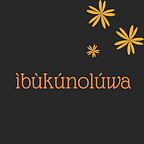Halima’s Water Solutions (1)
In today’s interview, Nolina interviews Halima Farouk, a corporate professional in the biotechnology industry charting her path as a microbiologist and clean water solutions developer. Recently, she led her team to win a $20,000 USD international pitch competition for the development of a portable, solar-powered self-install home kit to monitor the microbial content of potable water in rural regions of northern Nigeria. Halima is also a staunch advocate of early childhood education and paediatric healthcare. She continues to lend her influence and support to several charities and NGOs across the country.
Nolina: Stoked to be finally meeting you Halima. Thank you so much for granting us some of your time.
Halima: Oh please, the pleasure is all mine. I got to know of your interview with my friend Jola, and I was so impressed by how she told me it went. Since then, I’ve been secretly wishing to meeting you and here we are (Laughs).
Nolina: (Smiles) That’s so kind of you. I should thank Jola for her strong recommendations.
Halima: (Smiles) But it’s all true though. All true.
Nolina: Thank you very much. If you don’t mind, we’d like you to begin today’s interview by telling us about your educational journey and what led you to this path of water solutions development. The floor’s all yours.
Halima: Hmmm. That’s one deep question. Where to begin? Okay. I think I’ll begin from right before I wrote JAMB. We didn’t have any counsellors or that sort in our school to advise us on what to do, so I think I just went through the JAMB brochure, and looked up a couple of courses I thought looked easy. Since I liked Biology in secondary school, I figured, hey, I can just pick this course. It has “biology” in its name. And this was how I got in to the university to study microbiology. My Uni experience was generally okay, but you know how it can be in universities. Sometimes, there was that occasional segregation based on the perceived “seriousness” of the course you were studying. So, for example, if you were studying Medicine, your prospects were viewed as better than someone studying Botany or Microbiology. It was just how it was then.
Nolina: Permit me to jump in there and ask, how did that affect you? How did you take that?
Halima: Hmmm. I don’t think it ever really bothered me that people had those rankings in their heads, at least not until my final year, when I started to seriously ask myself, “What’s ahead? What will I do with this course? What is out there for me?” You may recall I already said I enjoyed Biology and I really liked Microbiology too. We didn’t have the best facilities for our lab sessions, but the internet was my go-to place. And it was from checking the internet that I got to know about biotechnology.
Nolina: (Curious) That’s quite the story. And after that, what happened next?
Halima: After I graduated from University, like everyone else, I did my NYSC. During that year, I tried out for a scholarship to do my Master’s degree outside the country and was lucky enough to win it. I was really lucky because it was only after I returned to Nigeria and started to meet more people in the course of my work that I got to know people’s stories. I digress. Just to say, winning the scholarship was a fantastic opportunity for me, but it was also arguably the toughest thing I’d ever undertaken all my life up to that point.
Nolina: Oh really? What happened?
Halima: I struggled. A lot. I know people say things like, “Oh yeah, that’s life. You grow through the challenges you go through,” and so on. And I do agree. I really do agree. I just think that it’s still important to acknowledge how truly tough some experiences can be. Adjusting to a new system of education was a challenge for me, and I dealt with imposter syndrome. I always felt like my background was inferior to that of so many other people I had met, and I felt sad and ashamed of it. I didn’t even know that this was called imposter syndrome- I didn’t know there was a more articulate way of describing it then, but it was there. I was constantly asking myself, “What am I doing here? Should I even be here?” It was not an easy journey.
